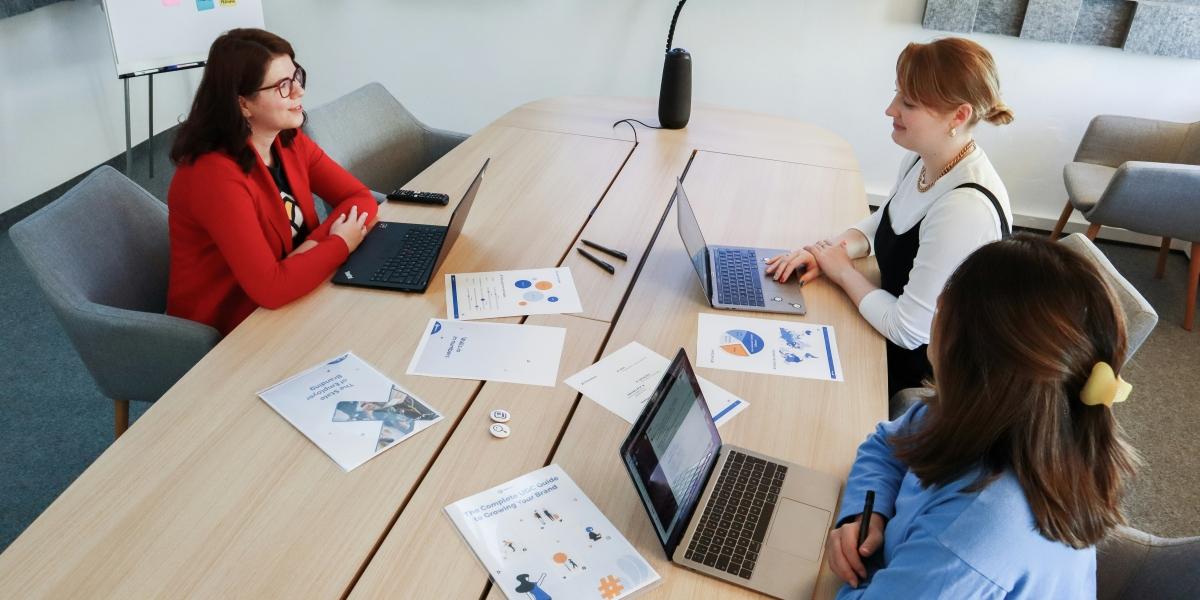Customer relationship management has evolved from a useful database to a powerful tool for driving growth. Enterprises that unify sales, service, and marketing data within a single hub often experience faster deal cycles and improved client satisfaction. Microsoft Dynamics CRM stands out due to its modular architecture and strong scalability, enabling businesses to expand without re‑platforming. However, extracting optimal value typically requires strategic configuration and cross‑department adoption. This article explores how leading Microsoft Dynamics CRM consulting providers help transform standard deployments into tools that support measurable enterprise change.
The Role of Dynamics CRM Consulting Companies in Business Transformation
Beyond Basic Implementation
A Dynamics CRM consulting company often goes beyond installing licenses and importing contacts. Many analysts assess commercial objectives, revenue targets, and customer‑service bottlenecks to design a configuration that aligns with daily operations.
Multi‑Disciplinary Expertise
Consultants typically combine skills that internal IT teams may lack, such as:
- Business‑process analysis and gap identification
- Solution architecture planning, including entity relationships and security layers
- Low‑code customization using Power Apps and plug‑ins
- Role‑based training to support adoption
- Proactive maintenance, performance tuning, and phased feature rollouts
For enterprises seeking specialized CRM expertise tailored to their industry and size, platforms like HireDynamicsDevelopers connect organizations with experienced specialists who have a track record of delivering transformation results.
Translating Needs into Solutions
A subscription business requesting “better retention visibility” might receive a churn‑prediction dashboard with risk scores, automated renewal reminders, and escalation workflows. Manufacturing teams looking for quote accuracy could benefit from guided‑selling rules tied to live inventory and discount matrices. Each enhancement is often measured against KPIs—such as average handling time, net promoter score, or quota attainment—to assess commercial impact.
Ongoing Support and Refinement
Consultants frequently monitor system usage, identifying underutilized modules that may indicate training gaps or interface issues, then refine the system iteratively. The goal is a CRM platform that feels intuitive to users, supports continuous improvement, and maintains data integrity. Many enterprises report shorter onboarding cycles and reduced reliance on spreadsheets once the CRM aligns with departmental workflows.
Key Areas Where Dynamics CRM Consultants Drive Impact
Customer Relationship Optimization
Through Dynamics CRM consulting services, specialists often merge sales, service, and marketing data, providing representatives with a 360‑degree customer view that updates in real time. Lead‑scoring rules can adjust automatically during website intent spikes, prompting timely outreach. Personalized engagement sequences may reference purchase history, potentially improving engagement metrics.
Operational Efficiency
Workflow automation can reduce repetitive tasks, such as:
- Auto‑creating cases from emails with pre‑filled priority levels
- Routing approvals via Teams notifications instead of email clutter
- Surfacing AI‑assisted knowledge articles directly in agent consoles
These refinements often shorten resolution times and free up talent for higher-value work.
Sales and Marketing Alignment

Forecasting tends to become more reliable when both departments share a single data set. Marketers can analyze pipeline velocity, while sellers receive campaign‑sourced opportunity alerts in their dashboards. Shared metrics help foster accountability.
Scenario Illustration
A global electronics firm integrated its e‑commerce platform with Dynamics. Abandoned‑cart leads flowed into the sales queue, triggering follow-up calls within thirty minutes. Conversion rates reportedly climbed from 6% to 18% in one quarter, while support agents saved an estimated 400 hours by eliminating manual ticket classification. These improvements highlight why many executives prioritize CRM optimization alongside other software initiatives.
Customization and Integration: Key Drivers of Effective CRM Solutions
Tailored Modules
Through Dynamics 365 CRM consulting, specialists often design custom entities and dashboards that reflect approval workflows, pricing structures, and multi‑currency needs—rather than relying on generic templates. Conditional business rules can streamline data entry by showing only relevant fields.
Seamless Integration
Consultants frequently connect the CRM with:
- ERP systems for real‑time inventory and invoice visibility
- Marketing automation platforms to sync behavioral data
- Legacy databases via API gateways
This integration helps prevent data silos and ensures accuracy across teams.
Scalability and Governance
Modular design, managed packages, and governance policies can control system complexity. Data‑retention settings and audit logs often support compliance without sacrificing performance. A 2024 Forrester study suggested a 25% faster quote‑to‑cash cycle and a 19% rise in customer satisfaction when CRM was integrated with other systems.
Data Integrity Measures
Duplicate detection, field‑level security, and automated alerts can help maintain data quality, while cleanup jobs archive stale contacts and inactive cases. When integrations, governance, and unique processes work together, CRM is more likely to adapt to business growth rather than become a technical burden.
Choosing the Right Dynamics CRM Consulting Partner
Certification and Experience
Look for Microsoft Solutions Partner status, individual certifications, and participation in early‑access programs.
Industry Expertise
Sector‑specific tools—such as templates, compliance packs, and integration kits—may accelerate deployment and reduce regulatory risks.
Proven Results
Request concrete examples of success, such as:
- Case studies with before-and-after metrics
- Client references willing to discuss collaboration experiences
- Demos showcasing configuration depth, not just basic dashboards
Collaborative Approach
Leading providers often embed teams—including solution architects, change‑management coaches, and data analysts—and hold regular reviews to adjust priorities based on adoption analytics. A shared backlog can keep projects transparent and within budget.
Ongoing Support
Consider partners offering managed services, including feature updates, security patches, and periodic optimization reviews.
Transparent Pricing
Fixed‑fee discovery and architecture phases can provide cost clarity, while consumption‑based managed services may align expenses with actual usage. A balanced commercial framework encourages partners to deliver sustained value. A well-chosen partner can help accelerate transformation, manage costs, and keep technology aligned with business goals.
Disclaimer: The content provided in this article is for informational purposes only. It does not constitute professional business, financial, or technical advice. Readers are encouraged to seek consultation with certified Dynamics CRM specialists or other relevant professionals for guidance specific to their needs.
Published by Jeremy S.


















